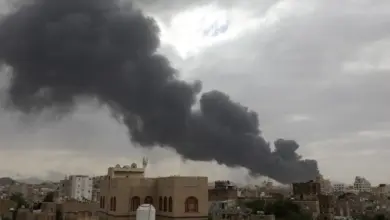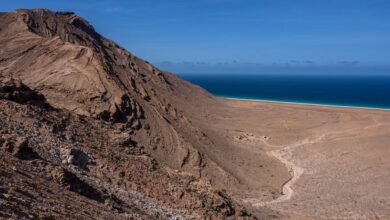State-run papers questioned the United States’ motives in the Arabian Peninsula, calling the US-backed military campaign in Yemen a scheme to interfere in Arab affairs.
Abdalla Kamal, editor-in-chief of Rose el-Youssef, wrote that the Western media’s discourse on Yemen is reminiscent of Orientalist writings in past centuries. “First they bombard you with statements about the traditions and customs of Eastern societies, then political and military colonization follows,” explained Kamal, a member of the influential Policies Secretariat of the ruling National Democratic Party.
“Stay away from Yemen,” Kamal warned, adding that any military interference could turn Yemen into a new Afghanistan with Western powers and armed groups squaring off against each other.
On the other hand, columnist Mohamed Abu Hadid of Al-Gomhurriya wrote that these recent developments indicate Al-Qaeda has become “America’s spearhead to dominate the region politically and militarily.”
According to Abu Hadid, Al-Qaeda was created by the US Central Intelligence Agency (CIA) to fight Soviet troops occupying Afghanistan in the 1980s. “The CIA recruited, trained and armed the mujahideen in Afghanistan,” he wrote.
For Abu Hadid, the collapse of the Soviet bloc in the late 1980s meant the United States no longer had a strong enemy against which to mobilize military force and legitimate its global hegemony. He explained that Al-Qaeda has become the new threat to justify US military interference in Afghanistan, Iraq and now Yemen.
Almost a week before the United Nations’ periodical review of human rights in Egypt, official newspapers have lashed out against human rights groups, accusing them of trying “to tarnish Egypt’s image abroad.”
Mohamed Aly Ibrahim, editor-in-chief of Al-Gomhurriya, dedicated the front page of his newspaper to criticisms of rights groups, journalists and opposition forces that have been ‘exploiting’ the grievances of Nubians and Sinai bedouins to damage Egypt’s reputation internationally.
“Nubians and Bedouins must not be categorized as minorities like some political activists and European-funded rights groups advocate,” Ibrahim wrote. He explained that raising issues of discrimination against Egyptian Christians, Nubians and Bedounis internationally is “part and parcel of grand plans to rearrange the entire Middle East and divide it into smaller entities.” On the other hand, he urged the government to invest more funds in Sinai to raise Bedouins’ living standards and compensate the thousands of Nubians who were relocated from their villages after the construction of the Aswan High Dam in the 1960s.
Independent daily Al-Dostour continued its extensive coverage of the recent government crackdown on senior Muslim Brotherhood (MB) leaders, including deputy chief Mahmoud Ezzat who is widely believed to command much infuence within the organization. In an interview, MB leader Abdel Moniem Abul Fottouh presented several proposals for a truce with the ruling regime which fears the MB’s influence in the lead-up to parliamentary elections next October.
Al-Dostour quoted Abul Fottouh as saying that the MB should abstain from fielding candidates in legislative elections for the next 20 years. “If the regime justifies its oppression on the basis that the MB might take power, then I call on all my brothers to refrain from nominating anybody in elections for the next 20 years,” Abul Fottouh said. He stressed, however, that this would not signify the MB’s withdrawal from politics.
Egypt’s newspapers:
Al-Ahram: Daily, state-run, largest distribution in Egypt
Al-Akhbar: Daily, state-run, second to Al-Ahram in institutional size
Al-Gomhorriya: Daily, state-run
Rose el-Youssef: Daily, state-run, close to the National Democratic Party’s Policies Secretariat
Al-Dostour: Daily, privately owned
Al-Shorouq:Daily, privately owned
Al-Wafd: Daily, published by the liberal Wafd Party
Al-Arabi: Weekly, published by the Arab Nasserist party
Youm7: Weekly, privately owned
Sawt el-Umma: Weekly, privately owned



